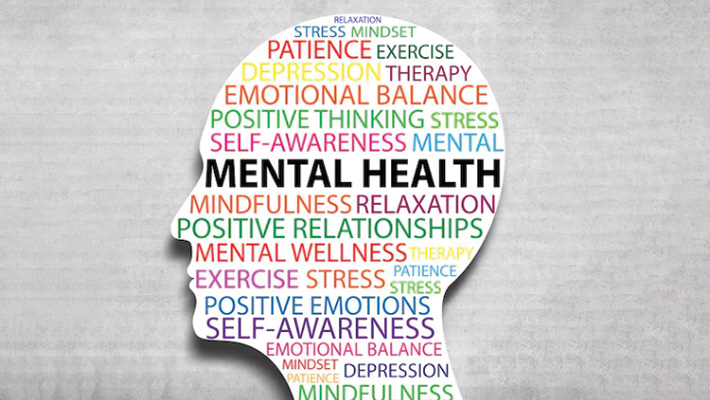
Mental health is an individual's psychological, emotional, and social well-being. It plays a major role in the workspace, because it can affect employees' performance and engagement. It is all about how we think, feel, and act. However, it will be different from person to person. Factors like diet, sleep, and exercise can positively impact mental health. Conversely, lack of good sleep, poor diet, and lack of mental exercise can make it difficult to manage mental stress.
For instance, a recent tragic case of a 26-year-old chartered accountant in Pune, who died from workplace stress, remarks the wild reality of professional life.
A 42-year-old manager at Bajaj Finance allegedly committed suicide due to work pressure, and mental torture by senior colleagues to meet high targets. These kinds of cases scare people, who work in corporate life.
According to the World Health Organization, “12 billion workdays are lost every year due to depression and anxiety, costing the global economy around $1 trillion annually in lost productivity, absenteeism, and reduced staff turnover.”
Further, as per the National Institute of Mental Health, “Chronic illnesses such as cancer, heart disease, or diabetes can make a person more likely to have or develop a mental health condition. Some mental health conditions, like depression, may play a major role in increasing a person's risk of physical illness.”
Companies can support employees for their mental health by focusing on these below points:
Encouraging mental healthiness in the work area is not a big issue. There are many strategies that support mental health.
● Offer benefits: Employers can help their workers feel less stressed on their health and their financial future with health insurance, by sponsoring retirement plans, other programs specifically dedicated to supporting employee mental health and offer financial fitness support.
● Flexible work mode: Allowing employees to work in flexible hours or the ability for some remote work can be a relatively simple, low-cost option that may help employees to maintain balance in their work life.
● Speaking with manager: Regular meetings will help employees to express their problems, they can get solutions from the supervisors, and this will help to build their career and make themselves engage in working towards a goal.
● Personal communication: If a question or issue should arise, employees may contact their HR team or supervisor through an online personal communication. This can be a convenient and confidential way to keep employees connected. It can also allow the leader to respond quickly and to take necessary steps if needed.
● Opportunities for enjoyment and enrichment: Consider including in your rich mix of benefits, other types of workplace perks. This can range from challenges or programs to improve physical and mental health to handwritten thank you cards, acknowledging an appreciation of service during challenging times.
Tips to overcome from Mental Health
1. Make an appointment with your doctor.
Mental illnesses are ultimately disorders of the brain or of a complex relationship between the brain and your present environment. A general physician can listen to symptoms and prescribe helpful medications. They can also refer you to good specialists, such as psychologists or psychiatrists who focus on treating your specific mental health disorder by interview or questionnaires.
2. Take necessary medication.
Mental illness can be caused by hormonal imbalances in the brain. Proper medications will assist to correct or reduce this issue. If your doctor suggests medication, follow their directions carefully. When starting a new medication, get in touch with your doctor regularly to discuss your progress and any side effects. It may take a long time and several different levels at various medications to find which is best for you.
3. Consider psychotherapy.
Therapies such as cognitive behavioral therapy, dialectical behavior therapy, and general counseling may assist all kinds of mental illnesses. Therapy can teach you to manage your symptoms, overcome bad days, and help to solve problems. Otherwise, it will worsen your symptoms. So, get suggestions from the doctor and what kind of therapies work best for a specific case.
4. Spend time with your close circle of friends.
Spending time with your loved ones and explaining what you were going through. Make sure that you get time to hang out with people you love, even if it's as simple as snuggling on the couch and chatting or watching a movie. You need their support to recover your mental health. They may be surprised at first, but once they understand, they will show you love and support to recover. Emotional support will help you to manage your illness.
5. Reach out to the online mental illness community.
There is a large online community of people fighting to overcome mental illness, notably on Tumblr. In this platform people used to post about self-care, mental illness, and general well-being. By reaching out to others in similar situations, you can exchange stories and tips to heal.
Self-care is important for employees because it can:
● Improve performance: It can raise productivity, and problem-solving abilities at work.
● Reduce stress: It can assist workers to reduce their stress levels and avoid burnout.
● Enhance well-being: It can improve employees’ physical and emotional health.
● Enlarge job satisfaction: Employees who prioritize self-care tend to have higher job satisfaction.
● Create a better work environment: It can improve the overall work atmosphere and team productivity.
Here are some tips for practice self-care at workplace:
● Set boundaries in your work
Set clear boundaries with colleagues and clients in your workspace.
● Take breaks while work
Take short breaks throughout the day to stretch, walk around, and refresh your mind back to work.
● customize your workspace
Add things which make you smile at work, like pasting photographs of favorite ones or art prints.
● Listen to music
Listening to music can boost you up and increase your efficiency to work productively.







